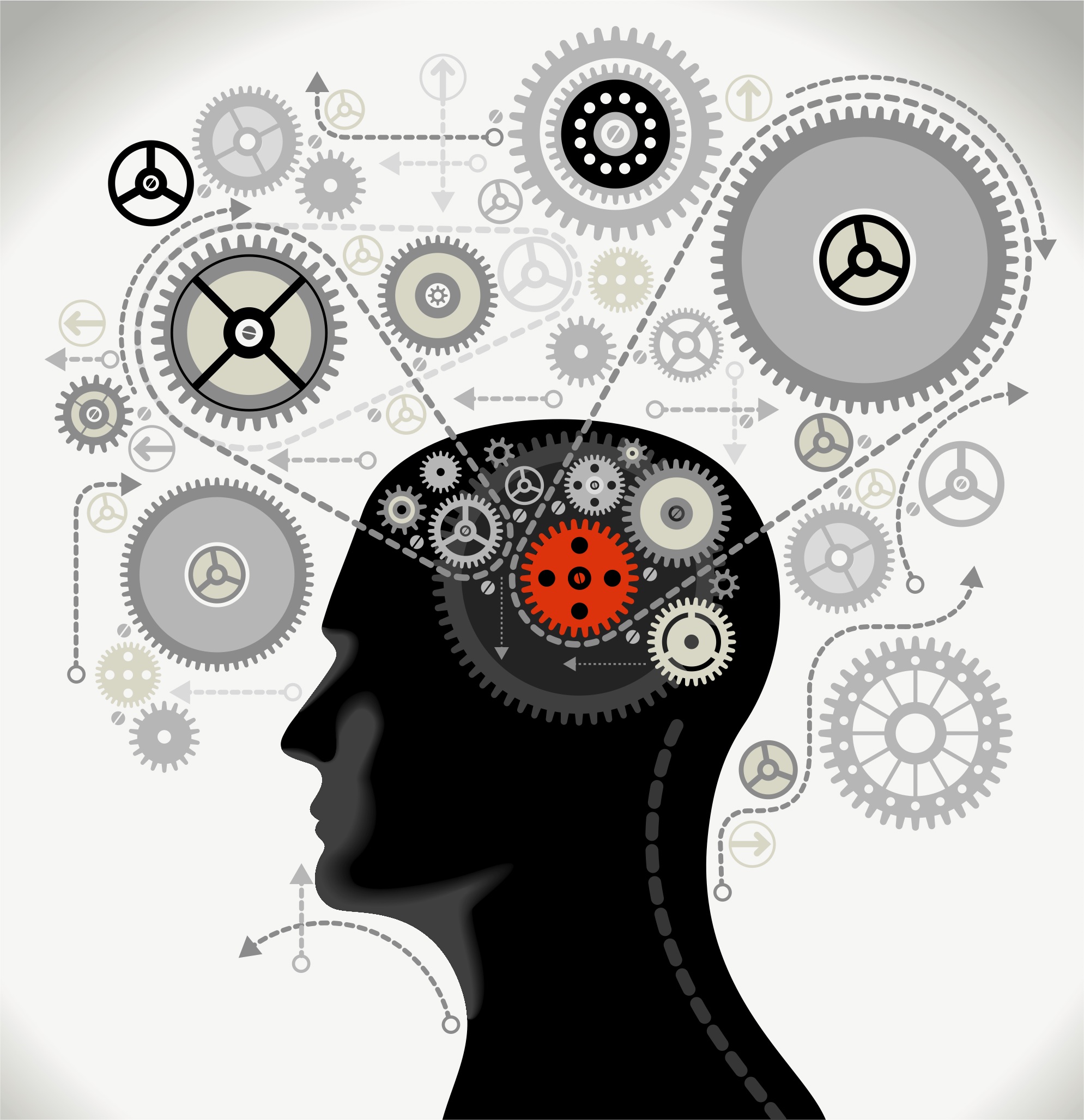"In my dream, I found myself flying up above the field. I looked behind me and saw that I had wings. They were large and beautiful, and they fluttered rapidly. I had turned into a butterfly! It was such a feeling of freedom and joy, to be so carefree and fly around so lightly in any way I wished. Everything in this dream felt absolutely real in every way. Before long, I forgot that I was ever Chuang Tzu. I was simply the butterfly and nothing else."
 |
| Chuang Tzu's Butterfly Dream |
Dreams have been puzzling us since the first human beings slept. Hence, prophesies, the predictions about the future, superstitions, all these are but the interpretations of dreams passed onto us since the dawn of day. It was not until Freud, that he started to describe dreams as the "Royal Road to the Unconscious", that instead of understanding more about the world, or the future, we understand more about ourselves if we take a good look at our dreams, the latent content, and the manifest content, our unconscious desires, or our unresolved past, all bubbles up in the vulnerable state of mind in our sleep. Some dreams are bizarre, others terrifying, and we call them nightmares. But some of our dreaming experiences are as real as our waking life's experiences, and some of them can evoke intense emotional responses, can bring lots of meaning to us and they can be remembered for the rest of our lives.
As Psychology students, without much experience with dream interpretation or analysis, what we initially thought when we entered the workshop is that we expect a lot of tips on how to interpret symbols or dream images in our dreams. What does flying mean? What does a tree mean? Is it a symbol or a manifestation of my desire for a penis? And so, with great curiosity, some of us skipped a few of our last classes of this semester in order to plant ourselves at the front seat and watch it all roll, in the workshop called "Dream, Radiant Children of the Night: Understanding in Psychotherapy and Life" (ps: Sorry Dr Anasuya and Miss Bawany).
 |
| Miss Evon was delivering a welcome speech to the participants |
 |
| Let the journey begins |
 |
| Participants were enjoying the refreshment |
 |
| Dr. Erik Craig was demonstrating the Free-Association technique with one participant. |
1) Remembering Dreams
2) Exploring Dreams
3) Understanding Dreams
4) Integrating Dreams
1) Remembering Dream
First, you need to remember your dream.
Yeah, this is the most important part, because you know... how can we understand our dreams if we can't even remember them? Our dreams are quite easy to forget because the first few moments after we wake up, we are still in an unclear state of mind, and so, if we didn't make an effort to remember or record our dreams during those few moments, the dream is likely to vanish from our memories, leaving only a few traces of it.
Dream Journalism
So, do prepare a journal or a log beside your bed or under your pillow, and every time you woke up from a dream, write down any vivid details of your dream. Jot it down with the date of the night of the dream. This technique is used in many other behavioral therapies or cognitive therapies as we jot down our behaviors or thoughts that is of our concern. There is no need to describe the dream in its entirety, just a few fragments that will result in accurate remembering will do.

If you want to remember your dream, write on your note that you are going to remember what you dream and then go to sleep. You have to be interested about yourself and your dream and this also increases chance of remembering your dream.
2) Exploring Dream
Second, think about your dream and explore the content of your dream through multiple perspectives. For example, if you dreamed of a pink elephant, describe about the pink elephant, what does it look like, or what is your feeling associated with dreaming about the pink elephant.
There are four common approaches in exploring our dream world, which you can try as described below:
- Free Association (Frued & Jung)

Think about your dream (such as a pink elephant), and SAY WHATEVER COMES TO YOUR MIND, then try to associate it with other words, memories, or images.
 Imagine the happening scene in your dream and also imagine what will happen in your dream, what comes next? It might lead you somewhere.
Imagine the happening scene in your dream and also imagine what will happen in your dream, what comes next? It might lead you somewhere.- Dramatic Method (Perls)
 Adopt yourself into any thing or roles that appeared in your dream. For instance, if you dreamed of being chased by a tiger. Put yourself into the perspective as a person who is being chased by a tiger and also try to put yourself as a tiger who is chasing the person. Try to act it out with different roles respectively and you might get more than you ask.
Adopt yourself into any thing or roles that appeared in your dream. For instance, if you dreamed of being chased by a tiger. Put yourself into the perspective as a person who is being chased by a tiger and also try to put yourself as a tiger who is chasing the person. Try to act it out with different roles respectively and you might get more than you ask.- Descriptive Method (Boss)
 Definition: What is an X?
Definition: What is an X?Description: What are X's like?
Differentiation: How are X's different from Y's?
Specification: What was this X in your dream like?
Response / Relation: How do you feel about X's? Does it remind you anything in your waking life?
For example, if you dreamed about a snake trying to consume you, try to question yourself, what is a snake, or what are snakes like in general, or what is this snake trying to accomplish through consuming you. Questioning yourself in these few ways without engaging in intellectualizing it can let us gain more clarity and insight about the dream.
3) Understanding Dream
 After exploring your dream, if you can somehow grasp the overview of your dream, then try to ask yourself about the dream and its relationship to your waking life. Is there any significance about the dream? How does this in anyway relate to your waking life? Is it about anything specific in your life (e.g. relationships with others, obstacles, burdens, concerns etc.)?
After exploring your dream, if you can somehow grasp the overview of your dream, then try to ask yourself about the dream and its relationship to your waking life. Is there any significance about the dream? How does this in anyway relate to your waking life? Is it about anything specific in your life (e.g. relationships with others, obstacles, burdens, concerns etc.)?One thing to note, don't just simply use any methods, or advice from books, or rigid methods to understand dreams, and instead, try to understand it through life's perspective, because dreams are a part of life, it is an extension of it, and more often than not, to understand dreams is to understand life itself, as we move on to integrate the dreams into our lives (as described in the next stage).
4) Integrating Dream
 You can integrate the dream into your real life, perhaps it is a sign about your real life difficulties, our dreams about a potential future, or even conflicts within yourself... (I am not going to predict what it means to you, even the psychotherapist might only facilitate your understanding process without imposing any interpretation or meaning to your dream, you are going to figure it out because it's your dream. :D )
You can integrate the dream into your real life, perhaps it is a sign about your real life difficulties, our dreams about a potential future, or even conflicts within yourself... (I am not going to predict what it means to you, even the psychotherapist might only facilitate your understanding process without imposing any interpretation or meaning to your dream, you are going to figure it out because it's your dream. :D )So, after understanding our dreams, what are we to do with this knowledge? Well, we can integrate it into our lives. Take for example, if I myself understand this dream to be somewhat related to my relationship with my family, I can use this understanding to try to mend my relationship with them, or to appreciate these ties of blood, or to create more intimacy, etc.
Some of you might recall dreams that were joyful, exciting, and even funny; while some recall dreams that were frightening, horrifying, emotionally intense, or saddening. But, dreams, notwithstanding the fact that they are conjured up by us, is still a part of us, and is as real as any experiences we have in our waking life. We don't dream for nothing: dreams tell us who we are and sometimes it gives us more than we can ask for.
 |
| Participants were taking photos with Dr Erik Craig |
 |
| Our group photo with Miss Evone and Dr Erik Craig |
---
I hope you enjoy reading this write up about a wonderful workshop that we had attended last Friday (21 November 2014). We have a good time, and we really appreciate the effort that Dr Erik had put into this workshop and how it ends on a satisfying note.
Tender is the night, that we shall dream and dream on. And fragile are the dreams that we seldom remember them, that they shall vanish into thin air. From us we come, and for us they shall return, unconsciously, unbeknownst to us. Rare are those that we shall remember for the rest of our lives, but precious are those that we shall carry on with us, moving us, and pushing us forward as we plunge on into our lives. So, we shall end this article with the short saying by Dr Erik Craig, and in all its simplicity, in all its elegance, it is moving to us: So, farewell, until next time, and "Sweet dreams".




No comments:
Post a Comment